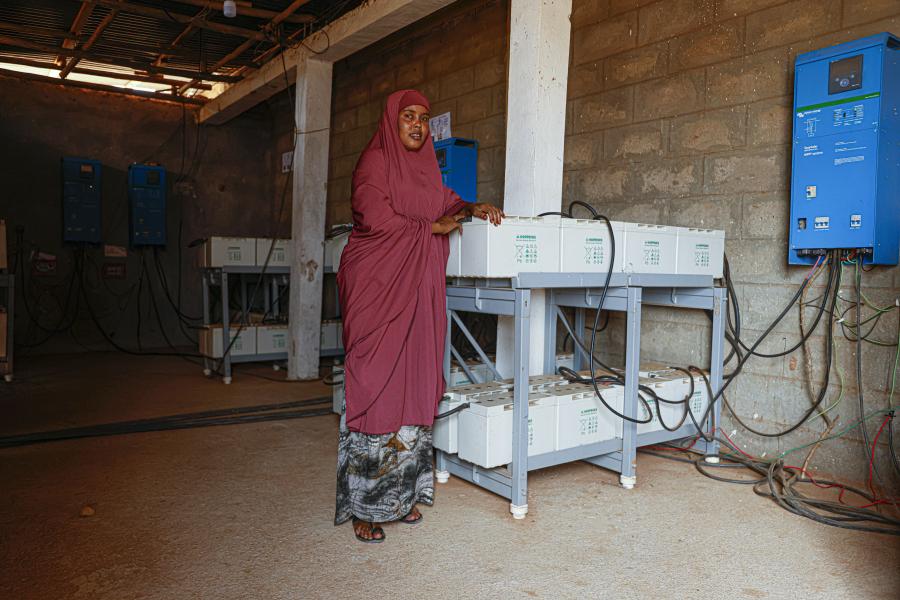Global needs in 2024
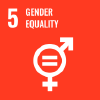
Forcibly displaced and stateless people have a fundamental right to actively engage in decisions affecting their lives and well-being. Programmes and activities that respond to forced displacement and statelessness and address their impact must be inclusive, effective and informed by the voices and capacities of affected individuals and communities.
Women and girls, persons with disabilities, persons belonging to minorities and indigenous peoples, LGBTIQ+ persons, older persons and children and youth are often especially exposed to risks of violence, abuse, neglect and marginalization. These risks are compounded by gender inequality, intersecting forms of discrimination, the climate crisis, protracted and new conflicts, as well as shrinking civic spaces which create barriers for some groups, including women and girls, in exercising and claiming their rights in some countries. Furthermore, underfunding impairs partnerships with local organizations, including those led by forcibly displaced people and by women.
Global needs for Community engagement and women’s empowerment in 2024
$635 million
-7% vs 2023 current budget
Regional needs
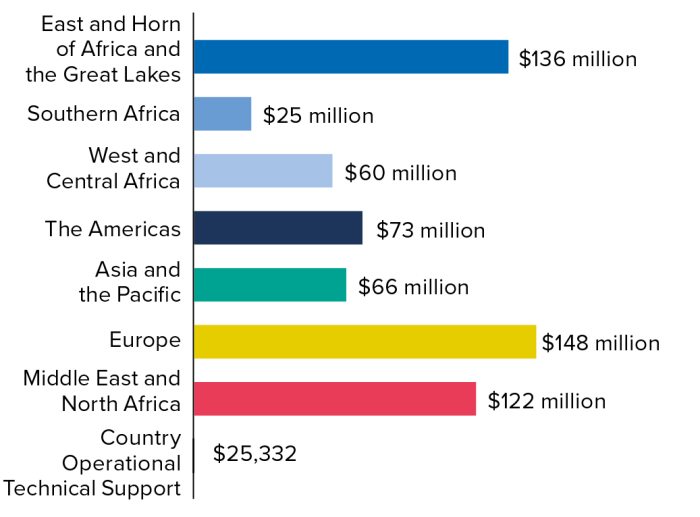
Top ten operational budgets for Community engagement and women’s empowerment (USD millions)
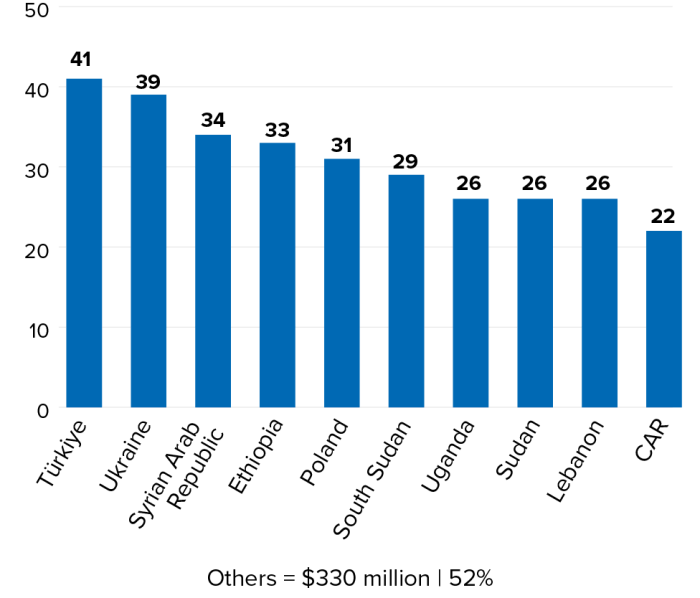
How UNHCR will make a difference
In 2024, UNHCR will invest in community empowerment and gender equality in more than 138 countries.
UNHCR invests in community-based interventions to prevent, mitigate and address protection risks and collaborates with community structures and grassroots organizations, particularly those led by displaced and stateless people, by women, and by groups at risk of discrimination and exclusion. Displaced and stateless communities are consulted to identify the needs and protection risks and engaged in the identification of sustainable and suitable responses that ensure no one is neglected and left behind.
UNHCR will promote the channeling of flexible funding to these community-led responses including through initiatives such as grant agreements, the Refugee-led Innovation Fund, and financing of displaced women’s organizations working on peacebuilding, conflict prevention, climate action, and protection from gender-based violence.
Support for refugee advisory groups, outreach volunteers of different age, gender and diverse profiles, and community protection structures will continue and be expanded. To strengthen Accountability to Affected People (AAP), UNHCR will invest in better systematizing of information from participatory assessments with displaced and stateless people, and feedback and response mechanisms to influence strategic planning, design, adaptation and monitoring of UNHCR’s programmes. Additionally, the use of gender analysis and features such as gender and disability “markers” in data systems will be amplified to inform programming and reporting.
In 2022, UNHCR operations in Burkina Faso, Lebanon and the Syrian Arab Republic reported an increase of the number of women in leadership and management in decision-making structures. In 2024, UNHCR will continue to promote the full and equal involvement of displaced and stateless women in decision-making and leadership structures. UNHCR country operations will work to ensure that women and girls have access to individual registration and documentation, and equal access and control over food, cash transfers and other assistance. Operations will facilitate equal access to livelihood opportunities, education and health services, including through national protection systems. UNHCR will promote digital inclusion and other innovative approaches to ensure women and girls have access to life-saving information, as well as skills and education opportunities enhancing their protection and economic empowerment.
A sample of core outcome indicators
7.3 Proportion of women participating in leadership/management structures
| Country | Population type | Baseline | Target 2023 | Target 2024 |
|
Burkina Faso |
IDPs | 41% | 50% | 50% |
|
Lebanon |
Refugees and Asylum-seekers |
69% | 75% | 75% |
|
Syrian Arab Republic |
IDPs | 66% | 66% | 70% |
|
Syrian Arab Republic |
Refugees and Asylum-seekers |
52% | 55% | 60% |
|
Syrian Arab Republic |
Returnees | 66% | 66% | 70% |
As a signatory and board member of the Women, Peace & Security and Humanitarian Action Compact UNHCR will facilitate the inclusion and participation of displaced women in the peace and security agenda. As a board member of the Women’s Peace and Humanitarian Fund, UNHCR advocates for flexible funding to women-led organizations, including non-registered organizations, to empower their response to crises and emergencies as well as peace efforts.
UNHCR will support the launch of a global network of forcibly displaced and stateless persons with disabilities in collaboration with the International Disability Alliance. The network will aim to amplify the voices of these underrepresented groups in the UN Disability Inclusion Strategy and in UNHCR and States’ efforts to ensure the accessibility of asylum procedures. UNHCR will enhance the understanding of disability in the context of international protection and will promote equal access for refugees with disabilities to social protection schemes.
These efforts at collaboration and partnership with communities ensure that UNHCR’s responses are effective and informed by people’s needs and priorities as identified by them, and they support the agency of communities as responders to crises.
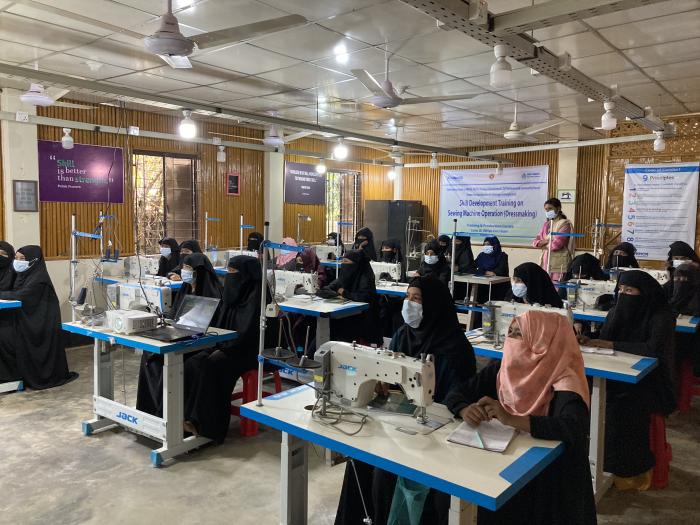

Empowering Rohingya women through skills development
Fast Retailing, the clothing company that has been supporting refugee livelihoods for over a decade, has a joint project with UNHCR to build the skills of 1,000 Rohingya women by 2025 and produce sanitary napkins and other products for refugee households in Cox’s Bazar, Bangladesh. The project not only provides livelihood opportunities with stipends but also rebuilds lives with dignity. A participant in the joint project said, “When my husband died, leaving behind two children, without any savings, I felt so devastated. After joining the production centre, I was able to provide education, food, clothes, and toys to my children. I feel so satisfied and proud of myself.”
